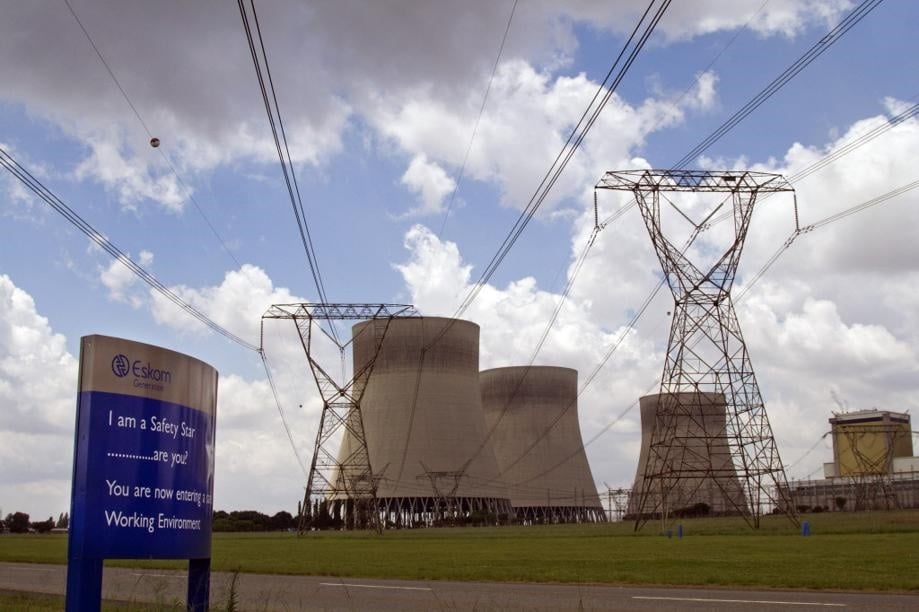
Company hijacked software developed, paid for and piloted by Eskom and then sold it back to the power utility through shady tender
A number of former Eskom employees now face allegations that they cashed in on a R275 million boiler monitoring software tender from their former employer after hijacking the software that was developed, paid for and piloted by Eskom.
The software and technology, now owned by Carab Technologies, which Eskom used until April last year to gather data and monitor the performance of its boilers, was Eskom’s own intellectual property.
Eskom ditched Carab Technologies in April last year after Treasury’s refusal in September 2017 to approve its request to extend the tender by another R70 million, from R275 million to R342 million, for another two years.
The tender expired at the end of 2016 but Eskom extended it four times, for three months at a time, while trying to convince Treasury to approve a permanent extension.
But, as a rule, the Public Finance Management Act does not allow the extension of expired tenders.
The rolling blackouts that gripped the country this past week are partly due to Treasury’s decision to stop Eskom’s irregular boiler health management tender with Carab Technologies.
At the time Treasury said it refused Eskom’s request to extend the contract because there was no evidence the service the company provided could not be provided by others.
And it was not clear how Carab was initially appointed by Eskom.
A confidential Eskom presentation City Press obtained states that the software was developed by former Eskom employees Dirk van Aarde and Fanie Scheepers in early 2008.
The document states that: “Data collection, development of the system, testing of the system was done under Eskom employment.
“Dirk van Aarde then left Eskom to work for Actom where he formed a company called Tekniva. Fanie Scheepers formed a company called Carab while he was still employed by Eskom.
“Fanie resigned. Dirk then bought Carab and a new company was formed called Carab Tekniva, specialising in boiler healthcare. The Carab system was then piloted at Kendal Power Station and a recommendation was made that it should be used by all power stations.”
Rudi Smit, another employee who worked on the Carab software at Eskom, resigned in 2013 to join Carab.
HOW IT WENT DOWN
Other documents City Press obtained show that later in 2008, Eskom had enlisted Carab Technologies’ services to monitor the boilers at the Kendal and Grootvlei power plants.
One of the documents is a presentation made by RWE Power International, a German company Eskom asked to conduct a “market survey” and recommend which companies could provide Eskom with boiler maintenance software.
During a presentation to Eskom bosses at Kendal power station, RWE said: “Actually, the full [Carab] programme is used at Kendal and Grootvlei power stations, and plans for introduction at Hendrina power station have been reported by station staff during the availability assessment.”
RWE presented Eskom with another option, Aware, which is another boiler maintenance system developed in the US.
However, the company concluded that “although both programmes offer similar features, the Carab programme seems to be more recommendable”.
The document shows that those who were part of the presentation included Carab Technologies’ employees.
Minutes of a meeting attended by all Eskom’s power stations’ managers show that in October 2008 a decision was taken to roll out Carab Technologies’ software across all coal-fired power stations.
Eskom eventually signed a R165 million three-year tender with Carab in 2011. There was no tender process.
In 2014 Eskom expanded the tender by another R110 million, increasing it to R275 million.
Carab Technologies has since been bought by French company Bureau Veritas.
Two weeks ago City Press reported that Eskom contracted and paid Bureau Veritas SA about R1.5 billion for quality assuring the construction of the Kusile power plant.
Read: R13bn Eskom bonanza for US firm
City Press also reported that when Eskom contracted Bureau Veritas, it had entered into another contract with Black and Veatch, a US firm of consulting engineers, to do the same work.
Black and Veatch, which was eventually paid R12 billion by Eskom, is responsible for designing the badly flawed Kusile power station.
Carab and Bureau Veritas did not respond to detailed questions sent on Thursday and on Friday morning.
Eskom responded with a brief statement, saying: “Transactions relating to the Eskom new build programme are part of the investigations conducted by the Special Investigating Unit (SIU). Where any element of fraud or criminality is found, they will follow relevant processes, including possible recovery.
“Eskom will be in a position to respond more substantially to questions raised only once the SIU has completed its investigations.”
FLAWED PROCESSES, NO TRAINING
A senior government executive with intimate knowledge of procurement said everything about the Carab Technologies contract was flawed.
“Let’s park for a moment the fact that the software is Eskom’s intellectual property. Let’s start with Eskom’s decision to appoint RWE Power International to do a market analysis for Eskom,” the official said.
“Government procurement doesn’t work like that. The appointment of RWE itself should have been done through a tender and it was not. RWE should have called for a Request For Information from the market, compiled a report about potential boiler maintenance companies and handed over a report to Eskom. Their recommendation of Carab in front of Carab’s representatives was highly irregular.”
Eskom, said the official, still needed to answer questions about how Carab was initially appointed at Kendal and Grootvlei.
“There is no evidence that procurement processes were followed. And thereafter they just kept extending an illegal tender,” the official said.
A key element of Carab’s contract, when the company was officially appointed in 2011, was that it would train Eskom’s employees to take over the running of the system.
Minutes of a meeting held by Eskom’s generation division in 2010 show that the transfer of skills to Eskom employees was a critical key performance indicator of the contract.
“Carab has agreed to the training of Eskom staff over the contract period of three years. Training will be performed on all three modules. Detail manuals and training material has been forwarded to Eskom. A detailed training schedule has also been sent to Eskom for acceptance,” read the minutes.
Another senior government executive with knowledge of the contract said: “The training did not happen for obvious reasons. If it had happened, there would have been no need for Carab’s services. As such the company would have gone out of business. Now there is a need to keep extending a flawed contract because skills impartation, which was a necessary KPI, did not happen.”
 |
| ||||||||||||
| |||||||||||||




 Publications
Publications
 Partners
Partners








